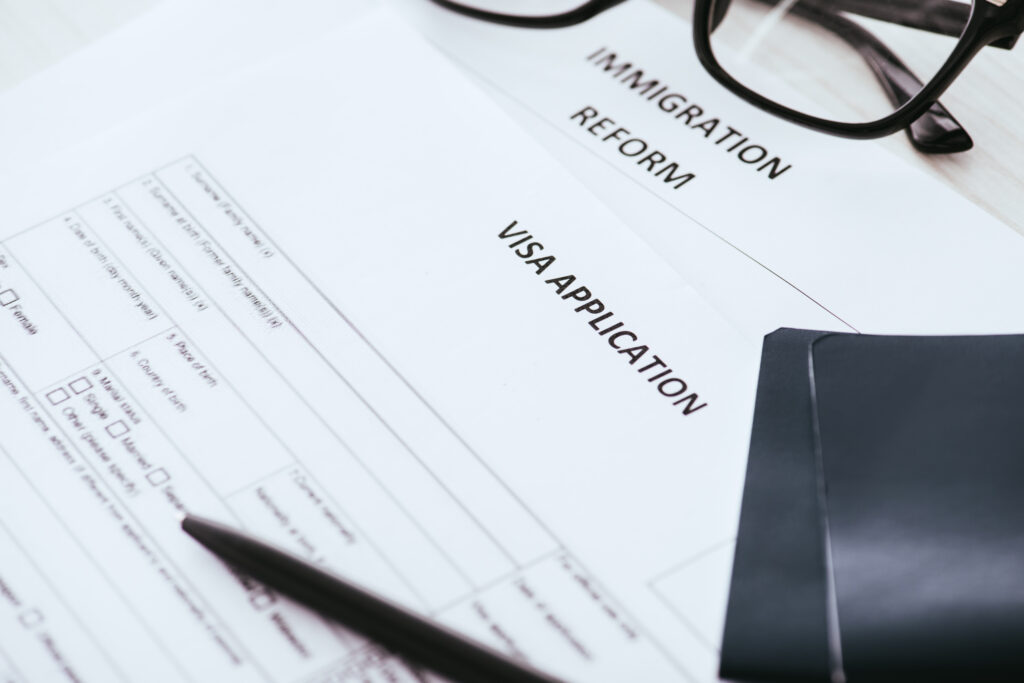Financial Maintenance Requirements for Skilled Worker Visa Applicants remain a central part of the UK immigration system in 2025. Skilled Worker applicants, along with their dependants, must demonstrate that they have sufficient financial evidence to support themselves when arriving in the UK. The core requirement is £1,270 in personal savings, held for at least 28 consecutive days, with day 28 falling within 31 days of applying. This obligation may be waived if the sponsoring employer certifies maintenance on the Certificate of Sponsorship, or if the applicant has already lived lawfully in the UK for at least 12 months.
UK Visas & Immigration (UKVI) requires this evidence to ensure that visa holders can sustain themselves early in their stay. The rules have changed several times, with major adjustments made on 22 July 2025.
Not every applicant is required to provide bank statements. Employers with valid sponsor licences can cover maintenance, and exemptions apply to those already established in the UK system. From July 2025, new rules have also changed who can bring dependants and adjusted eligibility thresholds and occupation lists. These updates create clear differences compared with the system in place before 2025.
What does the Government say?
According to the official GOV.UK site:
- When you apply for a Skilled Worker visa, you must provide “evidence that you have enough personal savings to support yourself in the UK”, such as bank statements.
- The minimum amount is £1,270.
- You must have held these funds in your bank account (or accessible savings) for at least 28 consecutive days, and day 28 must fall within 31 days before you apply.
These are the standard maintenance (“maintenance” is the UK immigration term for showing financial capacity) conditions to support yourself as the main applicant. Dependants have additional requirements.
What do you need to show?
Here is what “proof of funds UK visa 2025” typically means in practice, for Skilled Worker visa applicants:
| What? | Amount / Requirement | How Long Held | When must Day 28 be? |
| Main applicant (without employer-certified maintenance / less than 12 months in the UK) | £1,270 | 28 days consecutive | Day 28 must be within 31 days before the application |
Additional amounts for dependants:
- Partner: £285
- First child: £315
- Each additional child: £200 each
You must show these extra amounts in addition to your personal £1,270 requirement.
Exemptions & Special Cases
Not everyone applying needs to meet all the maintenance/funds evidence in the same way. Here are the main exemptions and special circumstances:
- Employer-certified maintenance
If your Certificate of Sponsorship (CoS) explicitly states that your employer will cover your maintenance costs (during your first month in the UK) up to the £1,270 threshold, then you may not need to show the savings yourself. - Applicants already in the UK with valid leave for 12 months or more
If you have been living in the UK under valid leave, you’re typically exempt from showing the maintenance funds. - Dependants applying separately
If a dependant is applying at a different time to the main applicant, the rules for them can differ (for example, how long they’ve been in the UK) in respect of proving funds. - Changes affecting medium or lower-skilled jobs & bringing dependants
From 22 July 2025, there are new restrictions: only Skilled Worker visa holders in jobs at RQF level 6 or above may sponsor dependants if their CoS is issued on or after that date. Those in occupation codes that have been removed, or those who assumed a new status after the new rules, may face limitations. - Care Workers and Senior Care Workers
These occupation codes have particular rules: from 11 March 2024, care workers (and senior care workers) entering under the Skilled Worker visa generally cannot bring dependants unless certain conditions are met.
What’s Changed — Pre-2025 vs Post-2025 Rules
The UK immigration rules have been evolving, and 2025 has seen substantial updates, especially from 22 July 2025. Here are the key differences from earlier rules:
| Area | Pre-2025 Rules | Post-22 July 2025 / Current Rules |
| Dependants’ eligibility (for medium/low-skilled jobs) | More lenient: many Skilled Worker job holders could bring dependants regardless of RQF level, as long as other conditions are met. | Now restricted: only RQF level 6 or higher for new CoS issued in or after 22 July 2025; those with status under older rules may keep dependants if continuously held. |
| Care Workers / Senior Care Workers | Could bring dependants under certain conditions, and make more roles eligible. | Largely not permitted to bring dependants if CoS is issued after the cutoff, with limited transitional protections. |
| Financial requirement amounts | The basic maintenance amount (£1,270) and additional sums for dependants have been fairly stable for recent years; what has shifted more are exemptions and who is eligible. | The £1,270 rule remains for main applicants without certified maintenance; dependants’ sums remain the same, etc., but eligibility to bring dependants and certification conditions are stricter. |
| Proof / Certification from employer | Employer certification of maintenance was accepted, but the scope was less regulated. | Still accepted—but the CoS must clearly certify maintenance. Also, exemptions are clearly spelled out. The burden of proof is greater. |
How to Provide Your Proof of Funds Successfully?
Given “proof of funds UK visa 2025” is often where applications go wrong, here are some practical tips:
- Bank statements must be recent, clearly showing the required funds, and for 28 consecutive days.
- Ensure day 28 ends no more than 31 days before your application date. Otherwise, you may need to restart the period.
- If your employer is to certify maintenance, make sure the Certificate of Sponsorship includes the correct wording. It must explicitly state that the employer will support you (up to the maintenance amount).
- Dependants’ evidence: show funds for them too, in addition to your personal amount, unless exemptions apply.
- Documenting relationships: marriage certificates, birth certificates, evidence you have been together for two years, etc., if required. This is especially important for partner dependants.
- Proof of residence & leave: If you have been in the UK for 12 months on valid leave, evidence of this will help with the exemption.
- Plan: because the rules (especially those for dependants) have changed, check the date of issuance of CoS and whether your situation falls under the new rules or transitional ones.
Common Misconceptions
- “I just need to show salary” — No. Salary thresholds are separate from financial maintenance (proof of funds). Even if your job meets the minimum salary for a Skilled Worker visa, you may still need to show savings, unless your employer covers maintenance or you’ve been in the UK for 12+ months.
- “My partner or child doesn’t need any funds if they are coming later” — Not always. If a dependant has not been in the UK under valid leave for 12 months, they similarly need to show sufficient funds.
- “Old jobs qualify to bring dependants under old rules” — Only if you held status continuously since before 22 July 2025 and meet conditions in older rules. New CoS issued after that date largely imposes the stricter rules.
- “Bank statements from abroad don’t count” — They may, but must be clear, translated if needed, and satisfy the same holding period. UKVI expects documentation to meet standards.
Why These Rules Matter?
- Preventing delay or refusal: Applications missing proper financial evidence are one of the main causes of refusal or delay.
- Avoid unexpected costs: If you are required to bring dependents, not having dependents’ maintenance funds lined up can mean having to defer or reapply.
- Legal compliance: The UK’s immigration rules are now stricter in certain occupations and with dependants. Non-compliance can affect future visas or settlement (Indefinite Leave to Remain).
- Budgeting for arrivals: The early period in the UK can be costly (housing, transportation, living expenses). Having proof of funds ensures you are prepared.
Tips for Checking You’re Using the Latest Rules
Given immigration rules are subject to change, here’s how to make sure you are working with current law:
- Always check GOV.UK Skilled Worker visa pages, particularly “Documents you’ll need”, “Your partner and children”, and “How much it costs”.
- Look at recent Home Office policy documents, caseworker guidance (such as the Skilled Worker caseworker guidance published in July 2025) for clarifications.
- If in doubt, consult an immigration lawyer or adviser, especially when you bring dependants or are in a job where rules have changed.
Conclusion!
In 2025, proof of funds UK visa 2025 remains a non-negotiable part of applying for a Skilled Worker visa. The Home Office places strong emphasis on applicants showing they can sustain themselves financially without turning to public funds. For most applicants, this means demonstrating at least £1,270 in savings, held for a continuous 28-day period, with the final day falling within 31 days of the application. On top of this, extra amounts are required for dependants — whether that’s a partner, the first child, or any additional children.
Mid-2025 brought in notable changes. The rules around who can bring dependants have shifted, especially for certain roles below RQF Level 6, such as care workers. What might have been permitted under earlier Skilled Worker visa rules may no longer apply today. This shift highlights just how important it is for applicants to keep up to date — relying on outdated guidance or hearsay can result in costly mistakes.
The message is simple: be prepared, be precise, and keep your paperwork watertight. The financial maintenance requirement isn’t just a formality; it’s a core part of the application process designed to show the UK authorities that you and your family can settle successfully.
For clear insights and the latest updates on Skilled Worker routes, make sure to follow Skilled Worker Mag — your trusted guide to navigating the ever-changing visa landscape.



